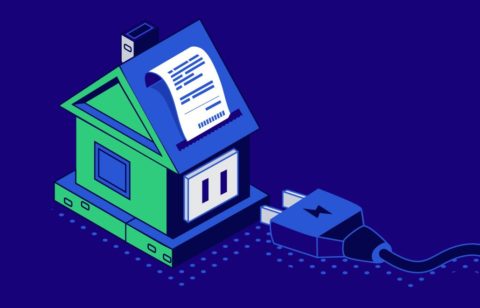If you’re worried about the economic fallout of the COVID-19 crisis, you’re not alone. Millions of Americans are out of work or concerned about where their next paycheck will come from. Many people are also stressed about how they’ll be able to cover rent, mortgages, car payments, and utilities in the months ahead. Because of all this uncertainty, it’s not surprising that so many people are trying to cut back on their monthly expenses. Fortunately, there are many ways to negotiate with creditors, utilities, and other organizations to reduce how much you pay for services. Here are some great tips on how to be successful when you’re trying to lower your bills.
Know Where You Stand
If you’re trying to lower bills, one of the most important things to do is figure out exactly how much you’re paying for things. Knowing exactly what you’re paying on bills such as your electricity, internet, and cell phone will arm you with the information you need to negotiate. Additionally, you should try to find out what you’ve historically paid on your expenses. If you don’t have hard copies of bills and statements on hand, see if you can download them. Understanding trends and cycles with bills will put you on better footing to negotiate them down when the time comes.
Shop Around
Another great tactic when you’re trying to lower your bills is to find out what a company’s competitors are charging for comparable services. Cable, phone, and internet companies are great bills to run comparative analyses on and find out what companies are charging for similar services. Once you have all this information, take a moment or two to sketch it all out on a table or chart so you can see all the costs and fees side by side. Having this information nearby will serve you well later on when you attempt to use it to strengthen an argument to lower your current bill.
Start Talking
Once you’re armed with all the information on a particular bill – its current and historical costs, the fee breakdowns, and the rates that the company’s competitors charge – you need to find the right person in the company to talk to. When you call customer service, you won’t likely talk to a person with the authority to lower a bill initially. Instead, you’ll have to find a manager or someone in a customer retention position if you want someone with the capacity to make a change. When you finally do find that person, let him or her know you’re considering canceling service, based upon research you’ve done that indicates there are better prices elsewhere.
Wrap it Up
Another way that you can try to lower your bills is by finding companies that bundle multiple services together to provide consumers cost savings. Many different industries offer bundled services; for example, communication companies often provide internet and cable television packages that are priced more competitively than paying for each of those services separately. Similarly, insurance companies often wrap coverage for homeowners and other types of services into a single product. Finding companies that bundle separate services you already have and need is a great way to lower your monthly bills significantly.
Pull Out the Cash
Sometimes all it takes to lower your monthly bills is to be willing to pay in cash. When you pay with credit cards or checks, companies often lose money due to all the processing fees financial institutions charge them. If you’re willing and able to pay the bill in cash instead, you may be able to get a discount on your overall bill, since the company won’t be charged these fees. Medical bills and costly maintenance services such as electrical, plumbing, and HVAC repair would be a good choice to float the cash option with, especially if you’re looking for a discount.
Play the Good Customer Card
If you’ve consistently paid your bills on time with a company, make sure you leverage that when you’re attempting to negotiate a lower rate. Companies that are dealing with high levels of late payments and defaults will likely want to keep their customers in good standing, and this may be all it takes to offer you a discounted rate to lower your monthly bill. This is especially true with credit card companies. If you want a lower APR on your current card that you’ve paid down consistently month after month, ask for one. If the credit card company isn’t willing to budge, let them know you’re going to cancel your card and get one with a super low introductory rate; this may be all it takes to get you the lower monthly bill you’re looking for.
Lowering Bills and Saving Money
If you’re trying to lower bills right now, the aforementioned tips are a great start. You may be able to lessen your monthly out-of-pocket expenses to the point where you can build up a nice emergency fund. At the very least, you’ll be saving money that can be better spent elsewhere. Start with a budget and a solid tracking of your monthly outlays, and then choose the avenue that might work best for your situation. A little effort now can yield great results down the line.







